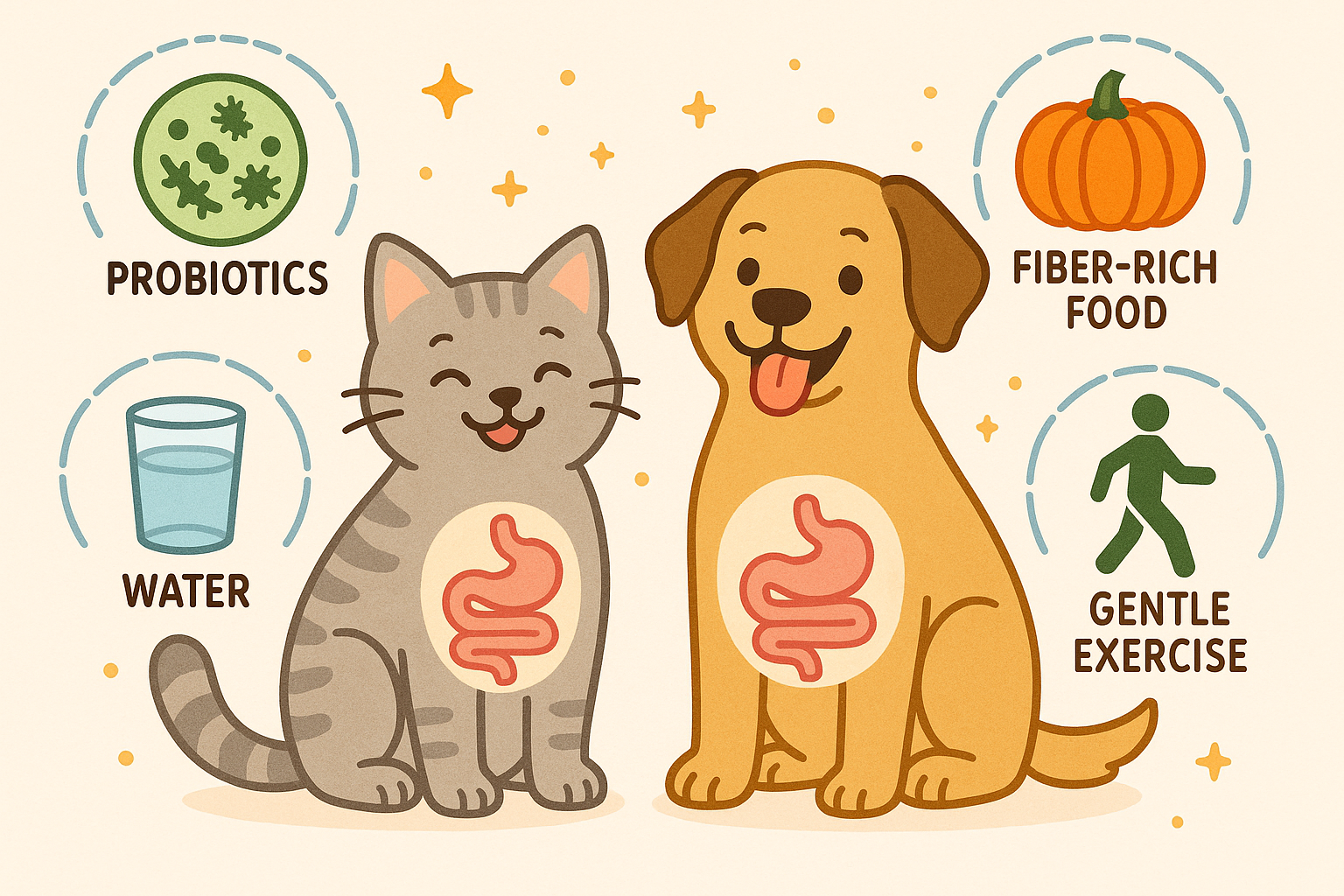What to do if your cat or dog is constipated? Effective solutions and prevention tips
Constipation in cats and dogs is a common problem for many pet owners, especially in cats and dogs, where the symptoms can be very uncomfortable. Understanding the causes and symptoms of pet constipation and implementing scientific solutions are crucial for maintaining your pet's intestinal health.
Symptoms of constipation in cats and dogs
Natural treatments for cat constipation often begin by observing bowel movements, such as frequent visits to the litter box, difficulty defecating, or hard, dry stools. What can be done about constipation in dogs? Owners can look for unusual bowel movements or abdominal lumps. These are warning signs of an abnormal bowel movement.
Causes of Pet Constipation and Dietary Recommendations
A pet's digestive health relies on proper dietary adjustments. Increasing dietary fiber, such as steamed pumpkin or high-fiber feed, can help soften stool and promote intestinal motility. Probiotics are also gaining increasing recognition for their benefits, including their ability to regulate intestinal flora and alleviate constipation.
Probiotics for pet constipation and recommended products
Among our recommended probiotics for pets with constipation, we particularly recommend H&JIN Lactic Acid Bacteria (Blue) Made in Japan . This product contains highly active probiotics that effectively promote intestinal health and help your pet's bowel movements. Simply mix the probiotics into your pet's food to easily alleviate constipation symptoms.
Seven amazing benefits of probiotics for cats and dogs you need to know
1. Improve digestive function
Probiotics can adjust the balance of intestinal flora and improve digestive problems such as diarrhea and constipation caused by feed changes, environmental changes or taking antibiotics.
2. Enhance immunity
Intestinal health directly affects the functioning of the immune system. Probiotics can increase the activity of immune cells, enhance the ability to resist pathogens, and reduce the risk of infection.
3. Relieve allergy symptoms
Specific probiotic strains have immune-regulating effects, which can improve allergic symptoms such as itchy, red and swollen skin, and help adjust allergic constitutions.
4. Improve stool odor
Probiotics promote digestion, reduce food fermentation in the intestines, effectively reduce stool odor, and improve living quality.
5. Relieve anxiety and stress
The intestines are closely related to the brain, and probiotics can relieve gastrointestinal discomfort and emotional problems caused by stress such as moving and environmental changes.
6. Promote nutrient absorption
Probiotics help break down nutrients in food, relieve bloating, diarrhea and constipation, and optimize overall digestion and absorption.
7. Supporting the health of older pets
The gastrointestinal function of elderly pets declines, and probiotics can maintain intestinal health, increase nutrient absorption, and improve indigestion problems.
Guide to Home Relief and Medication
In addition to dietary adjustments, proper exercise and hydration are also important components of home remedies for pet constipation. When home remedies are ineffective, guidelines for the medical treatment of pet constipation recommend that owners seek veterinary assistance and use safe and effective laxatives such as lactulose.
Prevention and long-term health management
Maintaining your pet's intestinal health and preventing recurring constipation starts with daily pet health care. Regularly monitoring your pet's bowel movements, choosing a diet rich in probiotics and high in fiber, and maintaining adequate exercise are key to preventing pet constipation.

